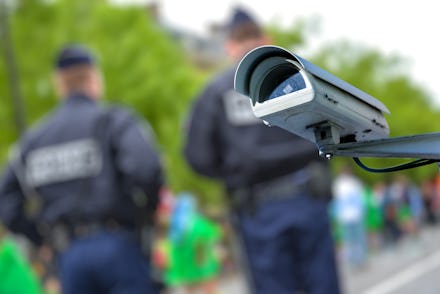If you're looking for an organization with a great privacy record, you don't bother with the FBI. Surveillance, like that of Black activists through the Counter Intelligence Program (COINTELPro) or Black Identity Extremists or activists at Standing Rock, is embedded within the agency. Due to that history, many are concerned about how the FBI uses new technological innovations and are turning to the courts for answers. Recently, the ACLU sued the FBI to disclose its use of facial recognition, marking a significant moment in national conversations about the technology.
Along with the FBI, the ACLU named the Department of Justice and the Drug Enforcement Administration in its lawsuit. The ACLU tried obtaining documents on government use of facial recognition through a Freedom of Information Act filed in January. The FBI and DEA "acknowledge receipt of the request", but didn't provide "any responsive documents."
“There can be no accountability if there is no transparency,” said Kade Crockford, director of the Technology for Liberty Program at the ACLU of Massachusetts, said. “The public has a right to know when, where, and how law enforcement agencies are using face recognition technology, and what safeguards, if any, are in place to protect our rights. This dystopian surveillance technology threatens to fundamentally alter our free society into one where we’re treated as suspects to be tracked and monitored by the government 24/7.”
In a post about the lawsuit, the ACLU specifically pointed towards the FBI's history of targeting communities of color and attempting to stifle political dissent. Since at least 2010, the FBI has monitored groups like Palestinian solidarity activists and Abolish ICE protesters.
There are already public records of law enforcement in the United States using facial recognition to target protesters. In 2016, Baltimore police used it to identify protesters after the murder of Freddie Gray. Since local law enforcement has used facial recognition to track protesters, it's not unfair to be concerned that the FBI and other government agencies may do the same.
The ACLU's lawsuit comes on the heels of multiple cities banning government use of facial recognition technology. The nation's first ban came out of San Francisco in May 2019. There, civil right advocates also pointed towards the technology's potential to promote widespread surveillance and continuous government monitoring.
There are a multitude of issues with facial recognition. For example, it can't classify transgender or non-binary people and struggles with anyone who isn't a white man, especially Black people. This failure has led to reports of companies like Google utilizing questionable methods targeting 'dark-skinned' people for facial data collection.
Often, people propose that adding more diversity to the datasets training facial recognition will fix the issue. However, the ACLU's lawsuits and bans across the country point at the deeper societal problems that won't be improved with more "accurate" facial recognition.
Government surveillance and its history won't disappear by hustling Black and brown people into datasets. Facial recognition is a technology putting already oppressed communities at further risk and, given this, many advocates argue it's a technology that shouldn't exist.
